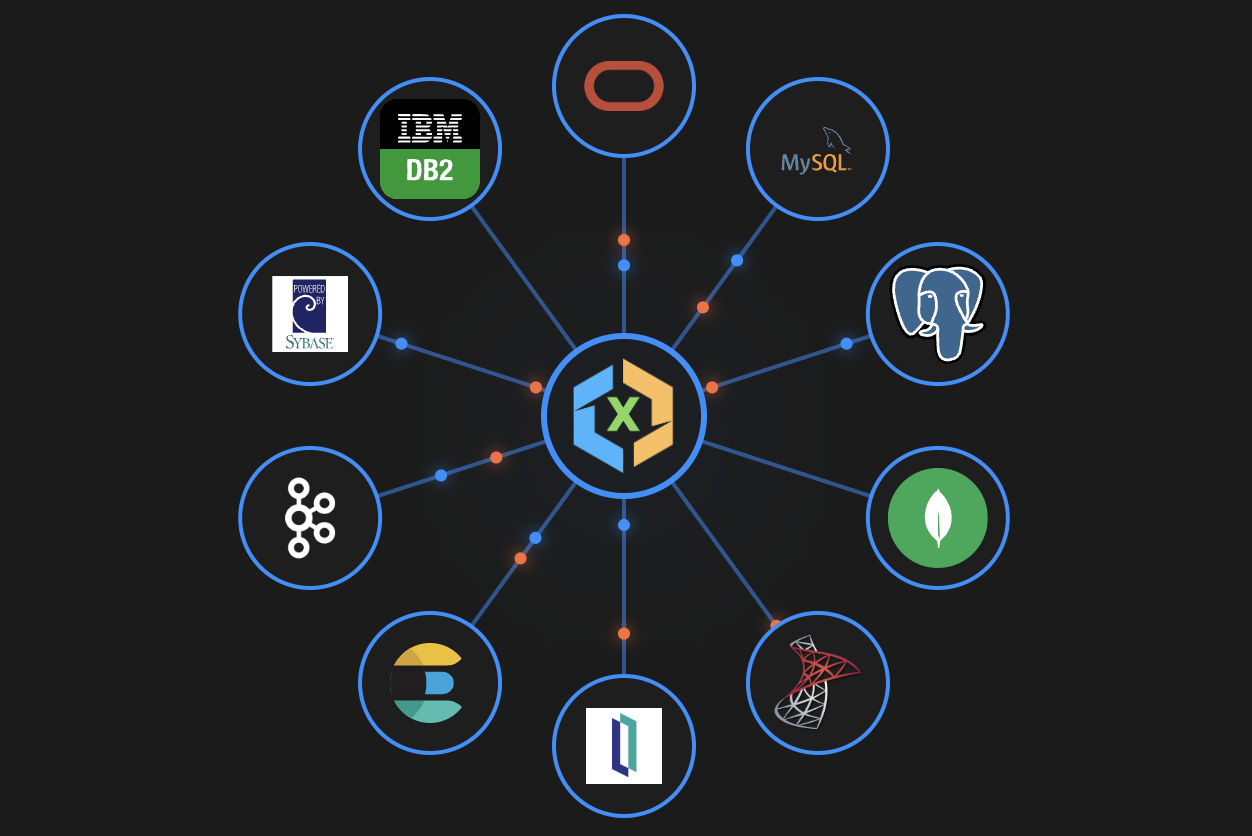What is XPipes?
Key Capabilities
Multi-Database Synchronization
Synchronize data in real-time between any combination of supported databases using advanced CDC technology, ensuring data consistency across your entire infrastructure.
Powerful Data Transformation
Transform your data during replication with built-in processors for table selection, field mapping, filtering, and more. Custom transformations can be implemented using Python.
Flexible Deployment Options
Choose between fully-managed cloud deployment or semi-managed compute engines that run in your own environment for enhanced security and performance.
Intuitive Visual Interface
Manage your entire data synchronization pipeline through a user-friendly interface, from source connection to transformation and monitoring—no specialized technical knowledge required.
Universal Database Support
Connect and synchronize data between any combination of supported databases including MySQL, PostgreSQL, Oracle, MongoDB, SQL Server, and many more.
High-Performance Synchronization
Optimized data synchronization engine that handles high-volume data transfers efficiently while maintaining data consistency and minimizing latency.
Real-Time Synchronization
Continuous real-time data synchronization ensures your target databases are always up-to-date with the latest changes from your source systems.
Comprehensive Monitoring
Real-time monitoring and alerting capabilities to track synchronization status, performance metrics, and data consistency across all your connected databases.
Supported Databases
XPipes supports a wide range of databases, enabling you to synchronize data between virtually any combination of systems in your organization.
| Name | Logo | Version | Status | Synchronization Modes |
|---|---|---|---|---|
| Oracle |  | 9i, 10g, 11g, 12c - 21c+, RAC supported | Stable | Full, CDC, Bidirectional |
| MySQL |  | 5.x, 8.x, 9.x | Stable | Full, CDC |
| MariaDB |  | 5.x, 10.x | Stable | Full, CDC |
| MongoDB |  | 3.x, 4.x, 5.x, 6.x, 7.x | Stable | Full, CDC |
| PostgreSQL |  | 9.x - 16.x | Stable | Full, CDC |
| SQL Server |  | 2008 - 2022 | Stable | Full, CDC |
| SYBASE |  | 16, Linux and AIX supported | Stable | Full, CDC |
| Kafka |  | 2.0 - 2.5 | Stable | Stream |
| IRIS |  | 2020.x and above | Beta | Full, CDC |
| File |  | CSV, with FTP/SFTP/SMB/S3/OSS | Beta | Full, Incremental && Changed File Monitoring |
| DB2 |  | 9.7 - 11.x | Beta | Full |
| Elasticsearch |  | 5.x, 6.x, 7.x, 8.x | Beta | Full |
| ClickHouse |  | 20.x - 24.x | Stable | Full, CDC |
Network Configuration
Static IPs for Managed Deployments
If you are using our fully managed computing engine, please allow database network access for the following IPs based on your deployment region to ensure the service operates normally.
If your database is deployed for internal access and does not allow public access, please use the semi-managed computing engine for service provision.
| Region | IPS |
|---|---|
| eastus2 | 172.210.174.1 |
Pricing
Pay-as-You-Go Model
XPipes uses a transparent pay-as-you-go subscription model, where billing is based on key resource categories:
- Synchronization engine memory usage
- Data transfer volume (no charge for semi-managed engines)
- Storage usage for temporary data buffering
The less you use, the lower your cost. If no resources are consumed for a period of time, you will not be charged—there are no fixed or base fees.
Free Trial Credit
Upon registration, you will receive a $300 credit with no expiration date. This credit can be used to explore and experience the full capabilities of XPipes at no cost.
Billing Cycle
By default, your billing information is recorded and updated hourly. Charges are processed on a fixed schedule each month. If your spending during the billing cycle exceeds a certain threshold, based on internal risk control policies, we may conduct one or more early charge attempts.
If a payment attempt fails, the platform will be unable to process any new data synchronization. Please ensure that your payment information remains valid.
